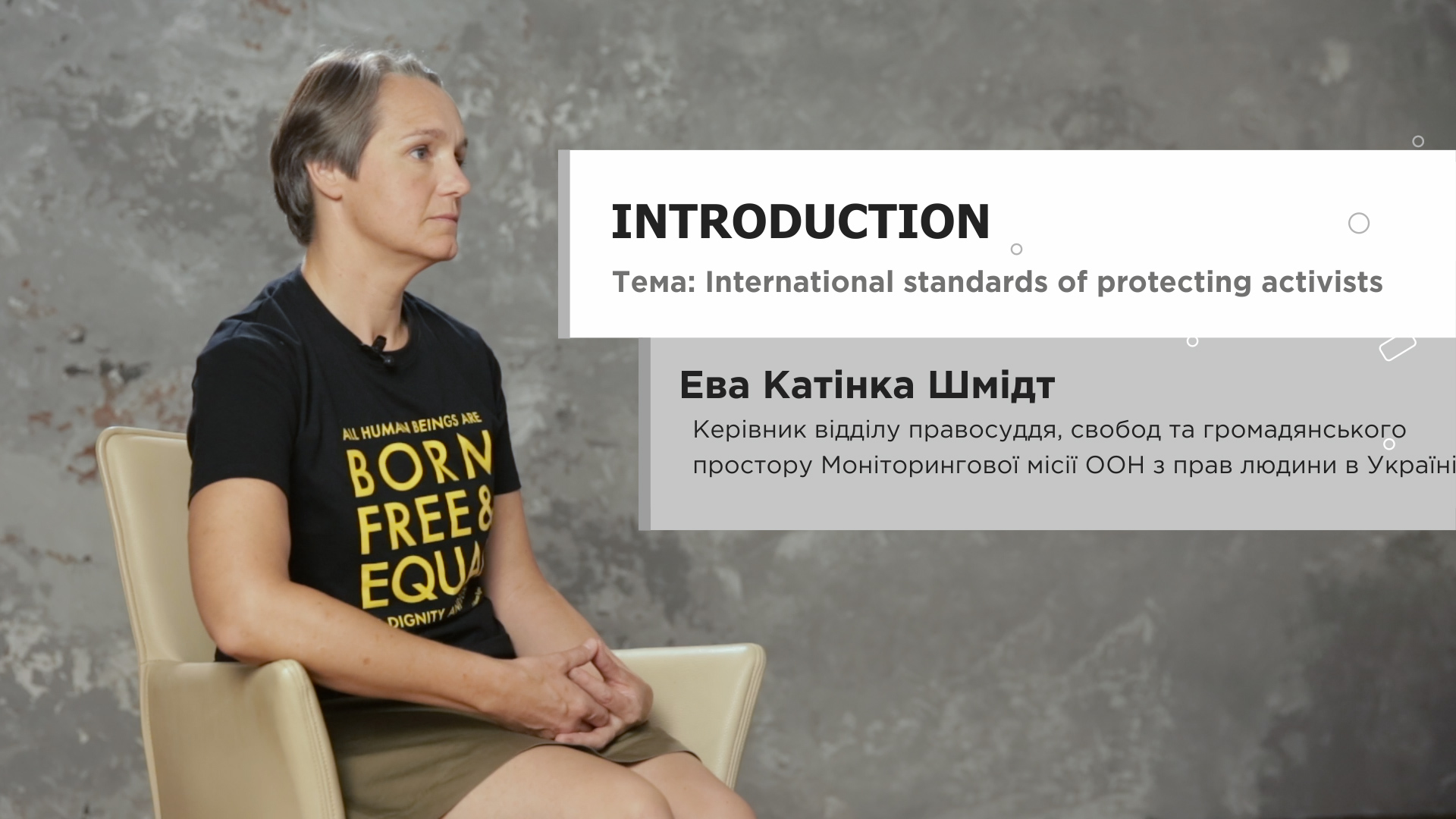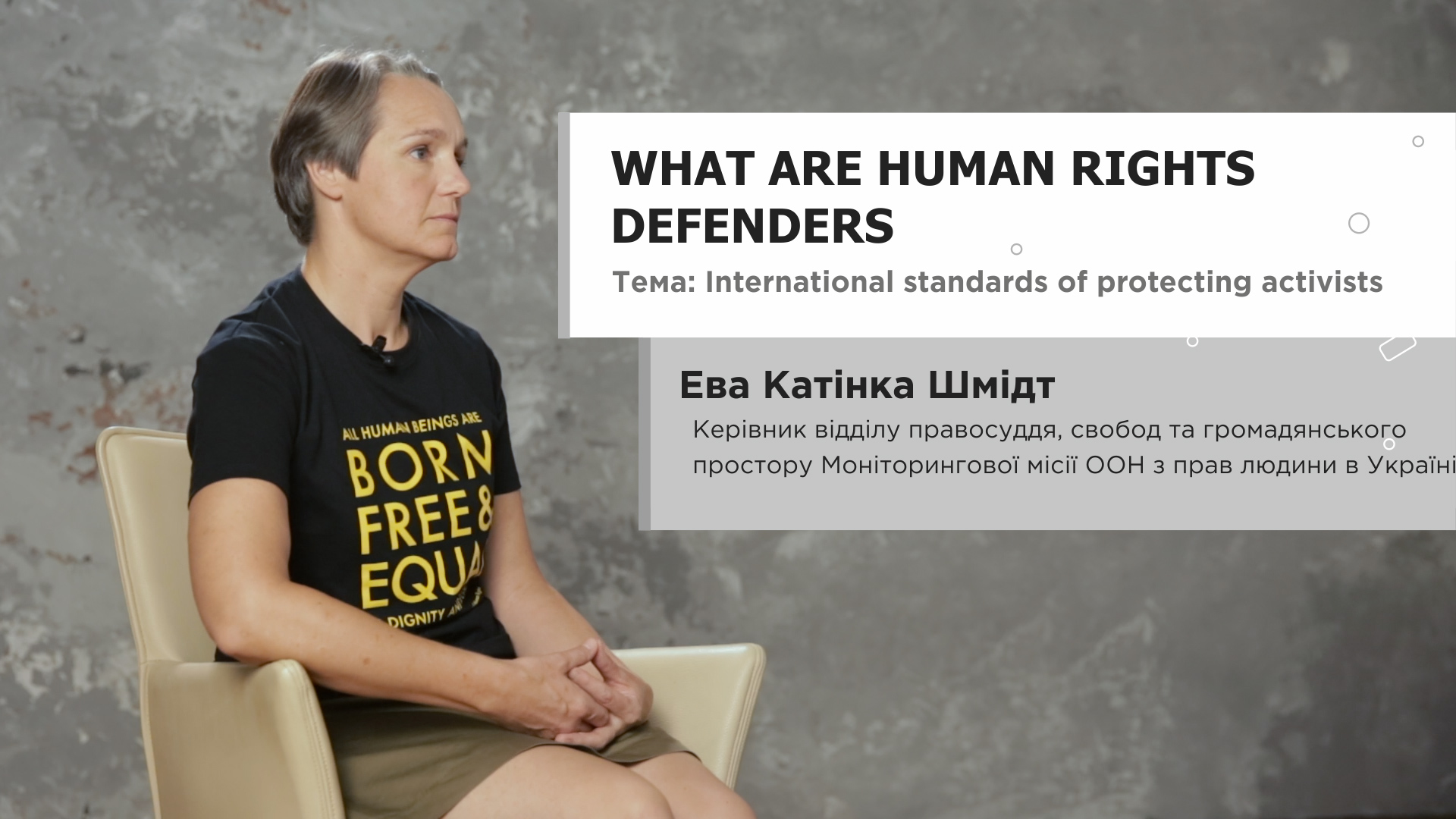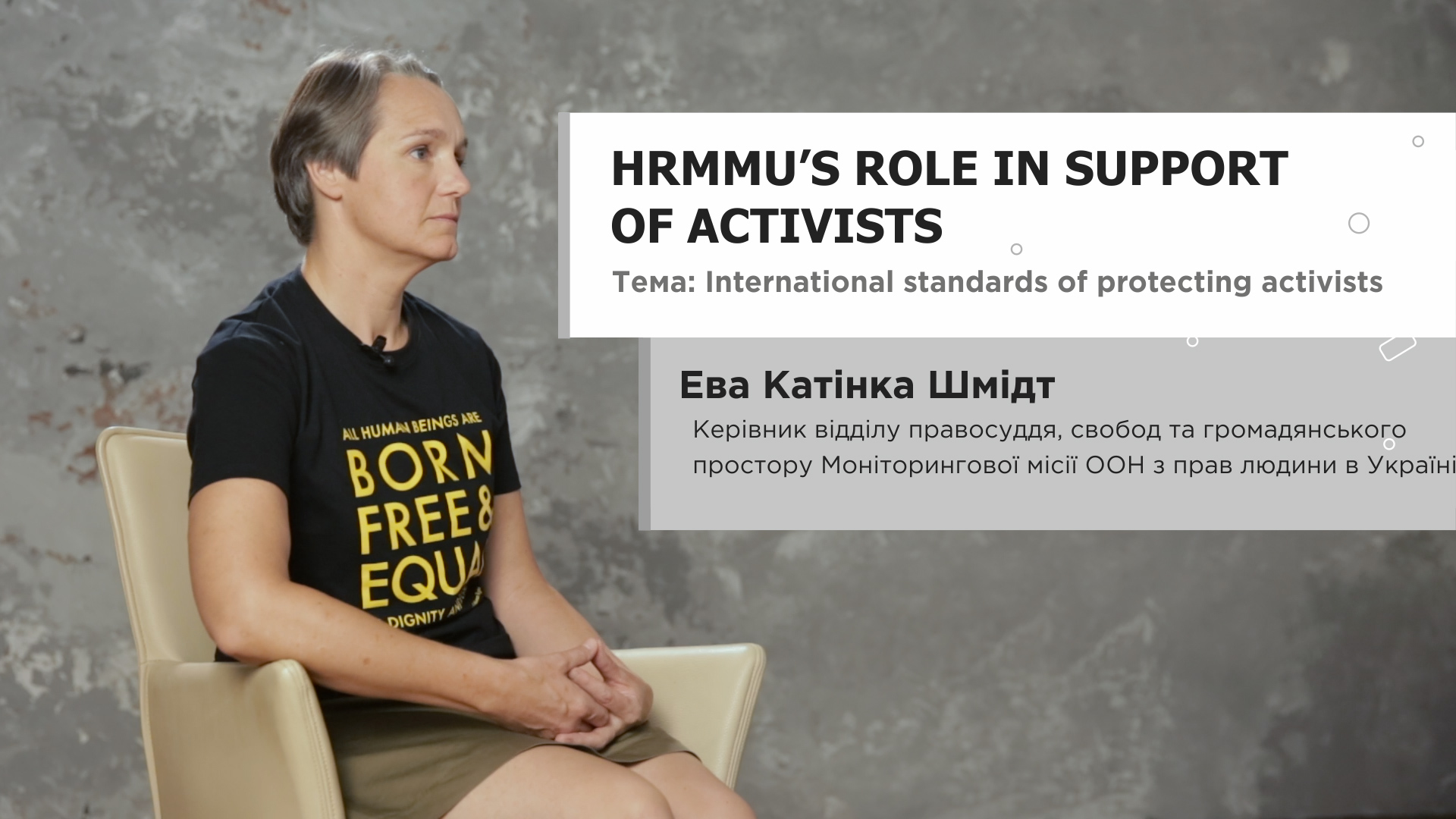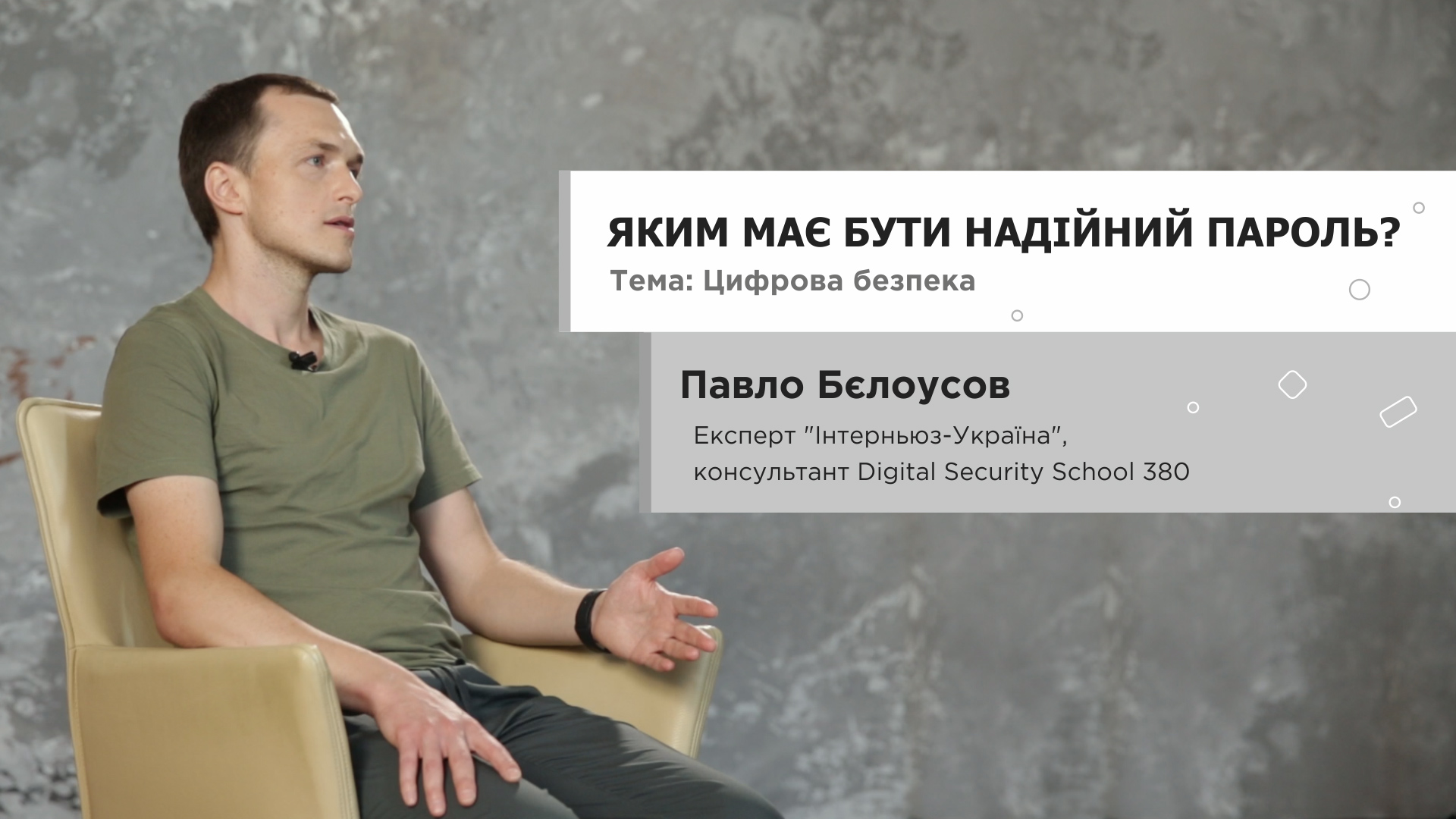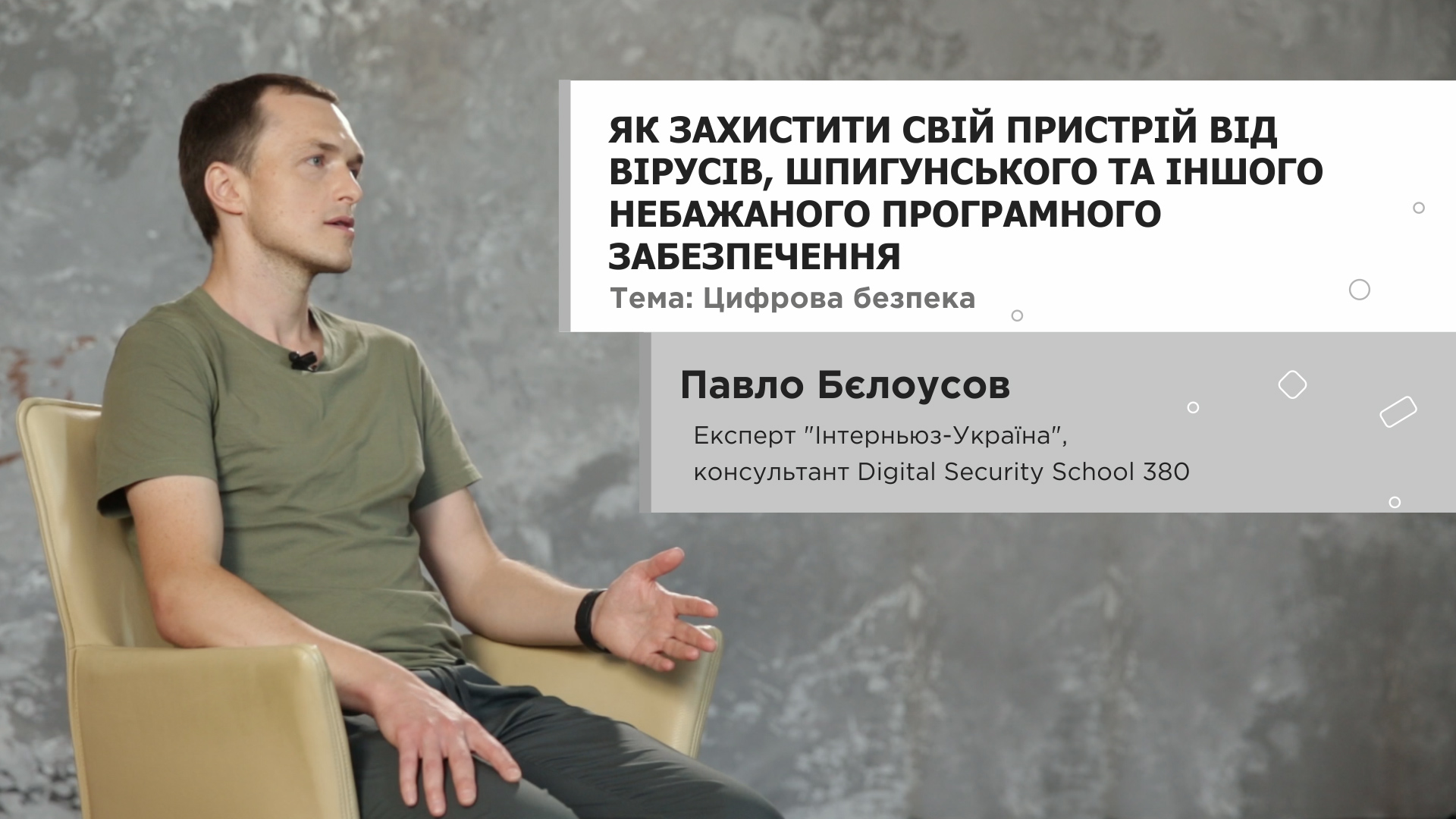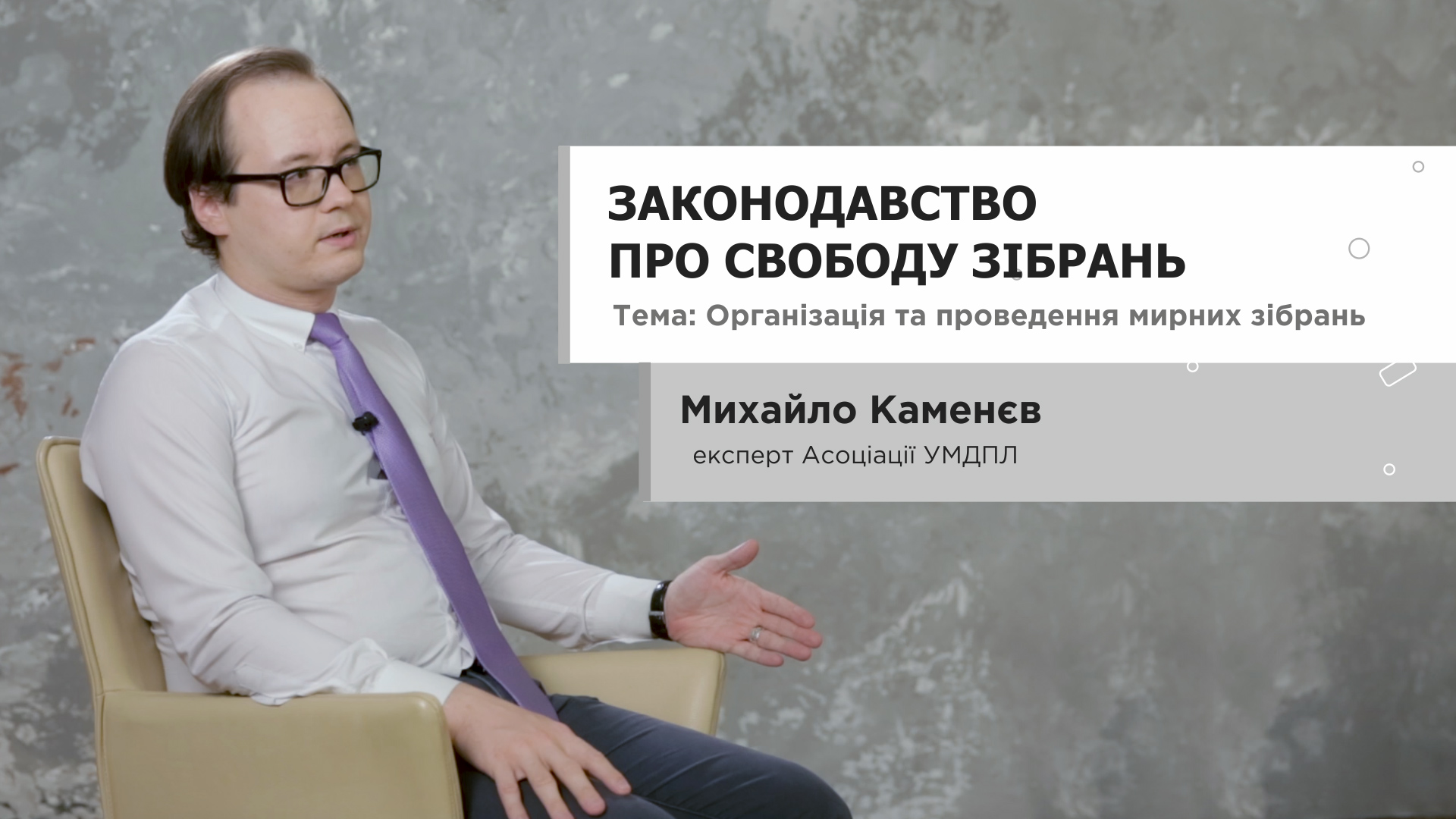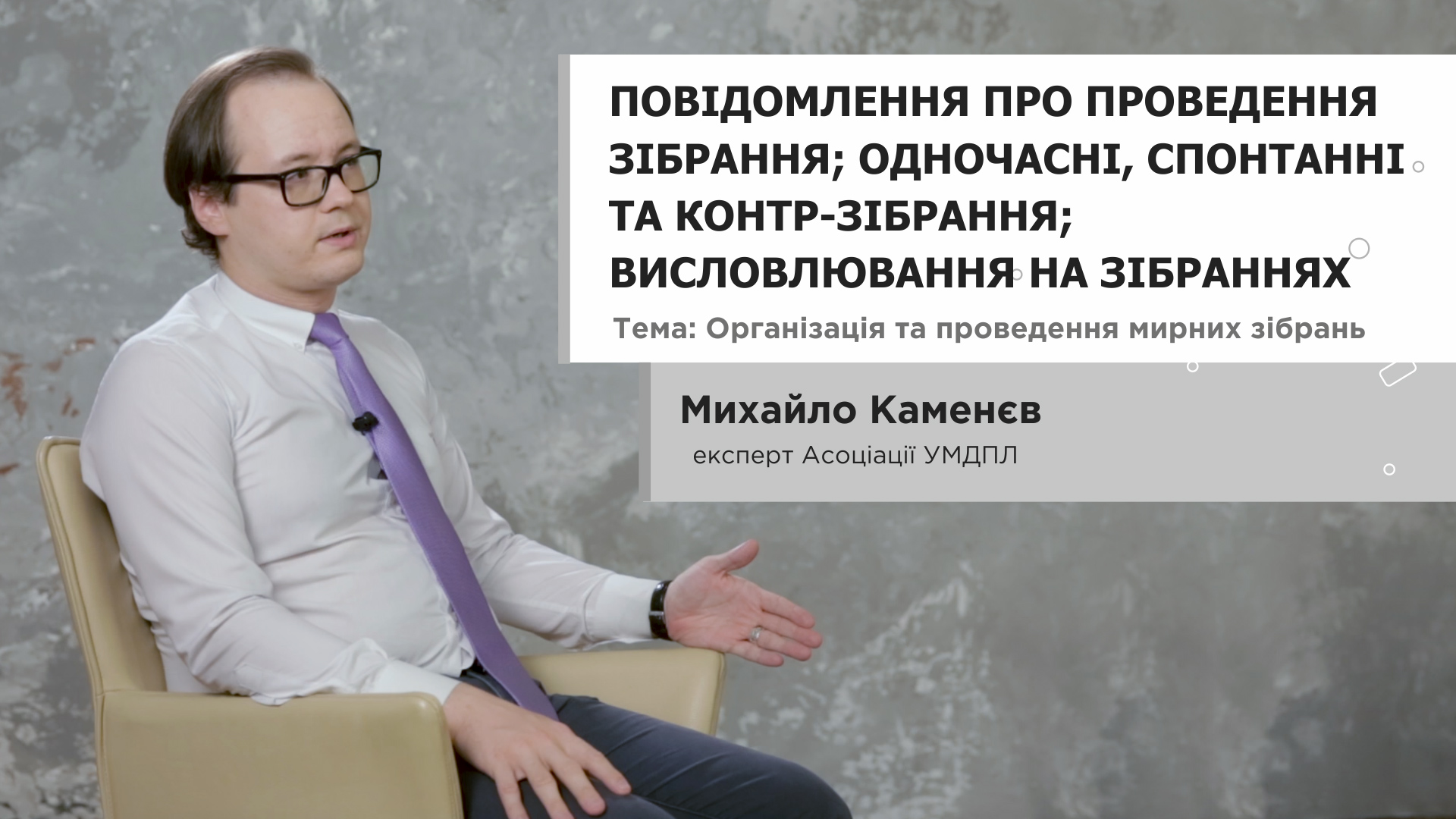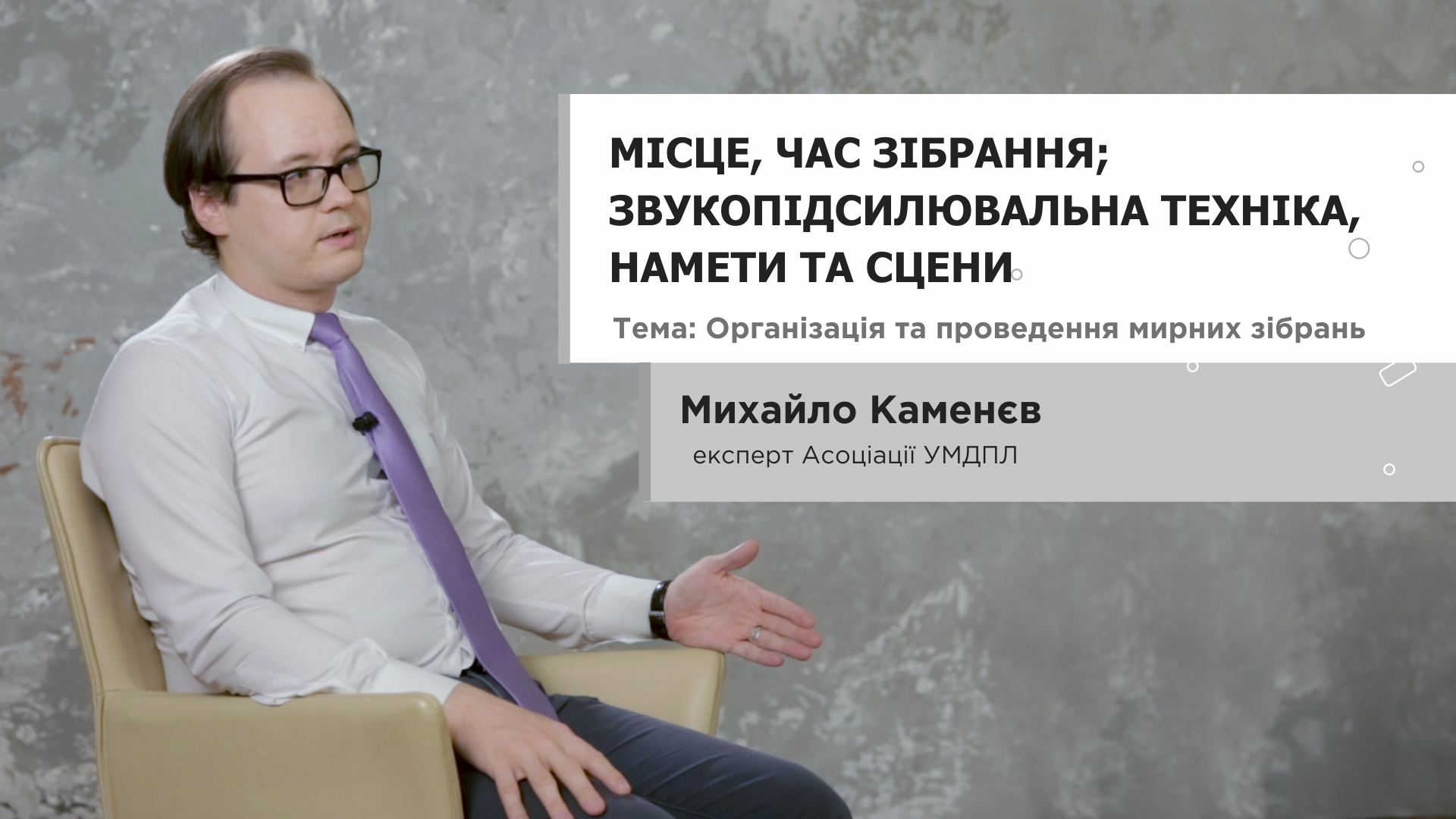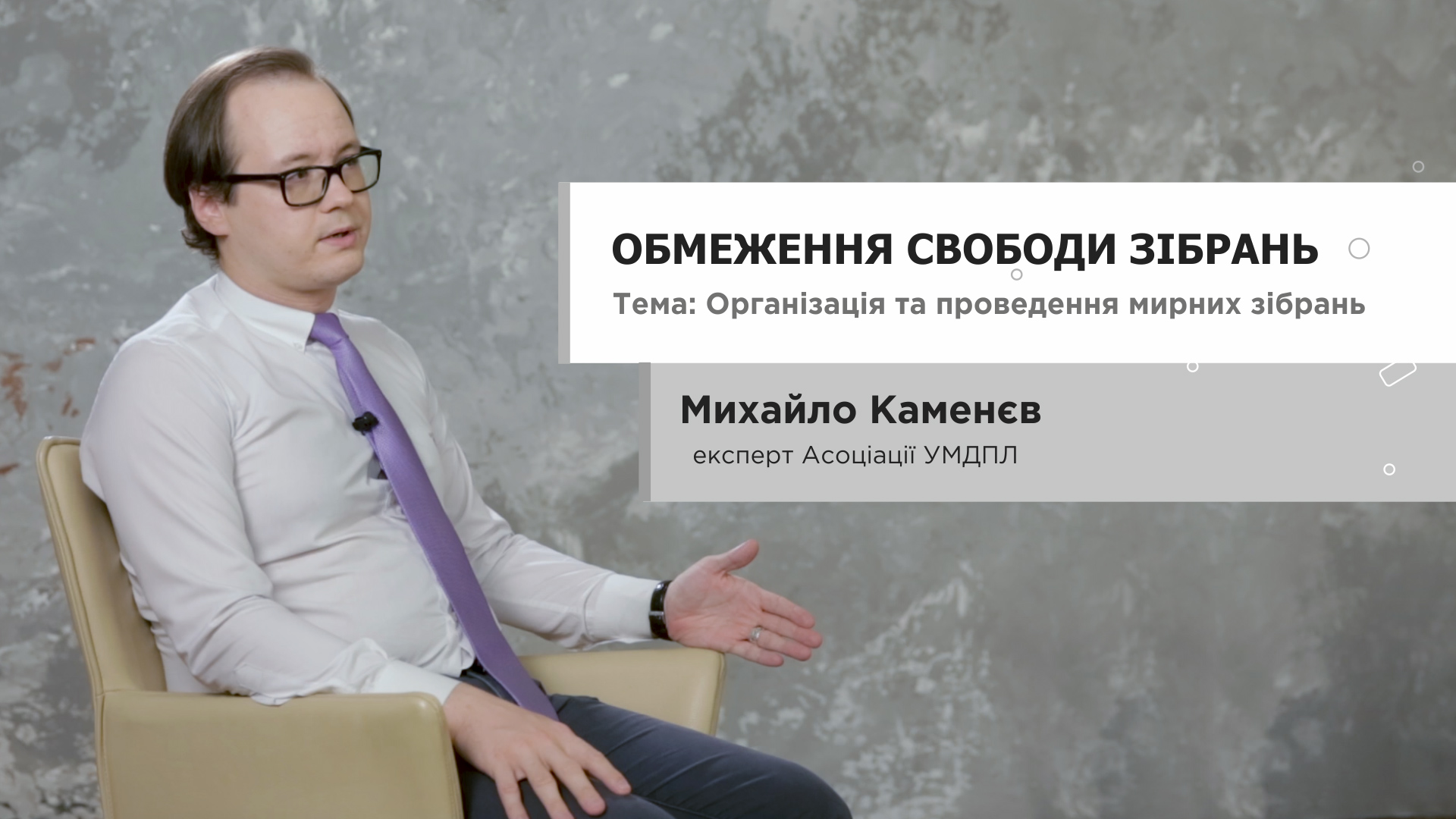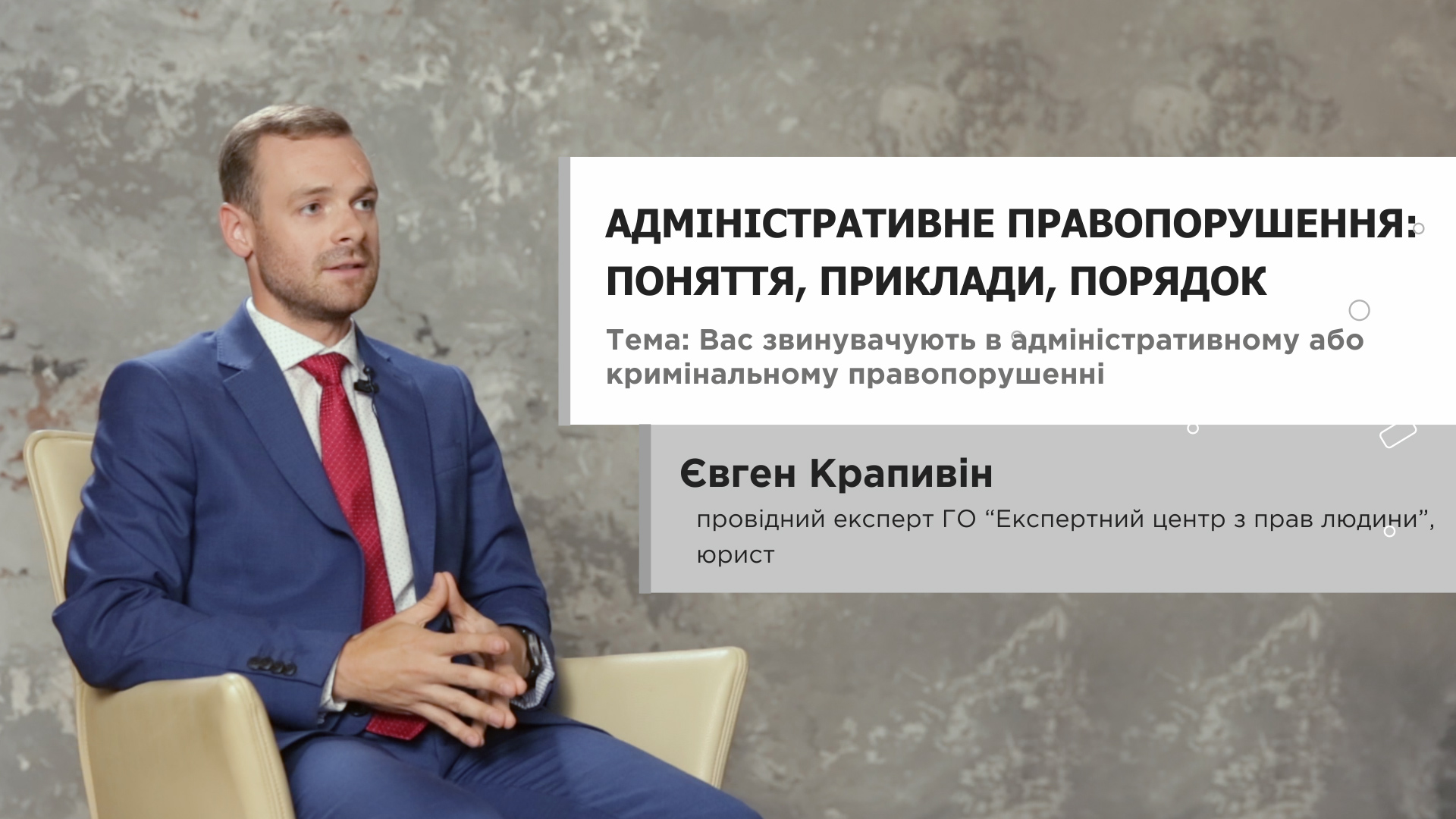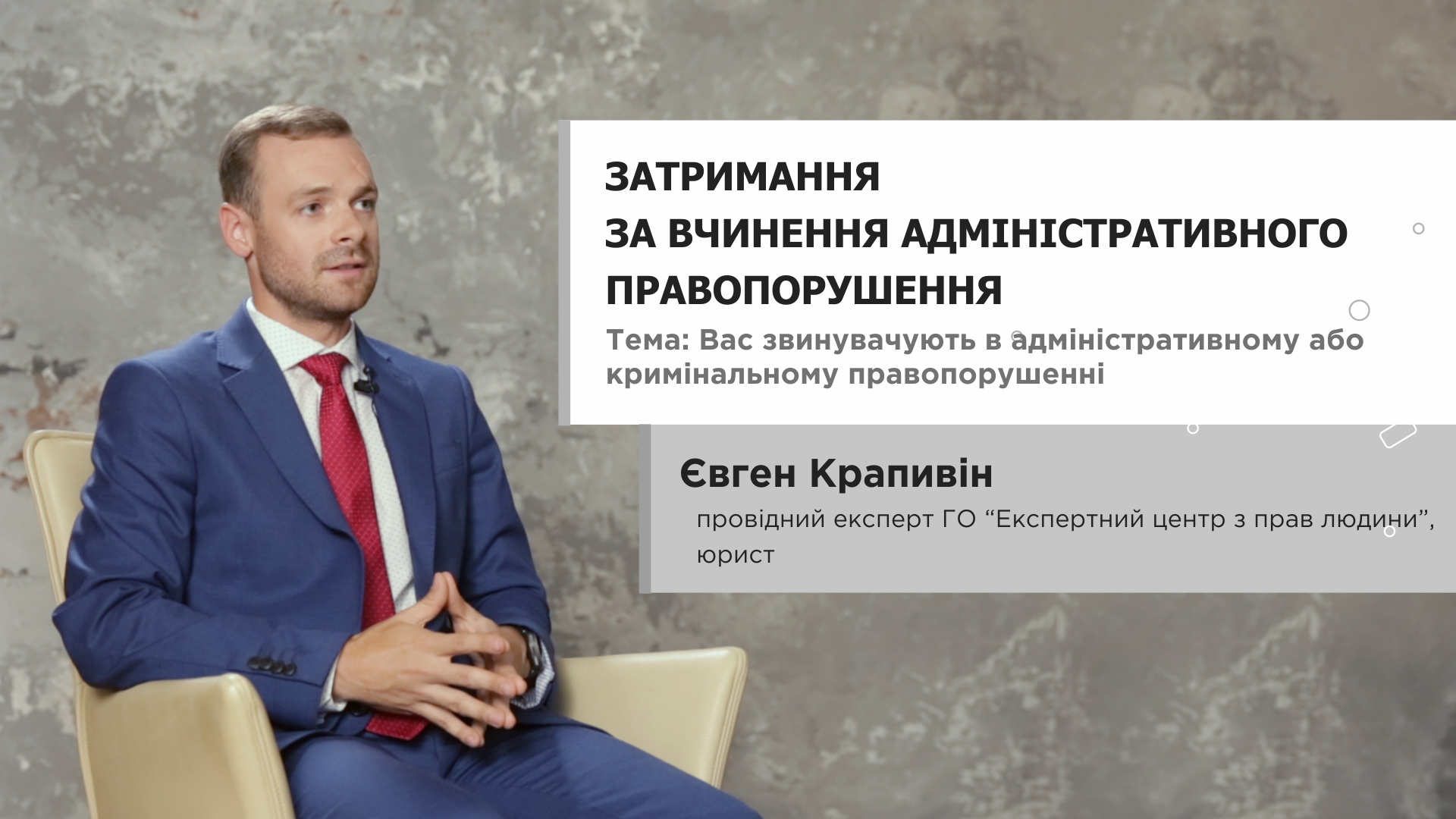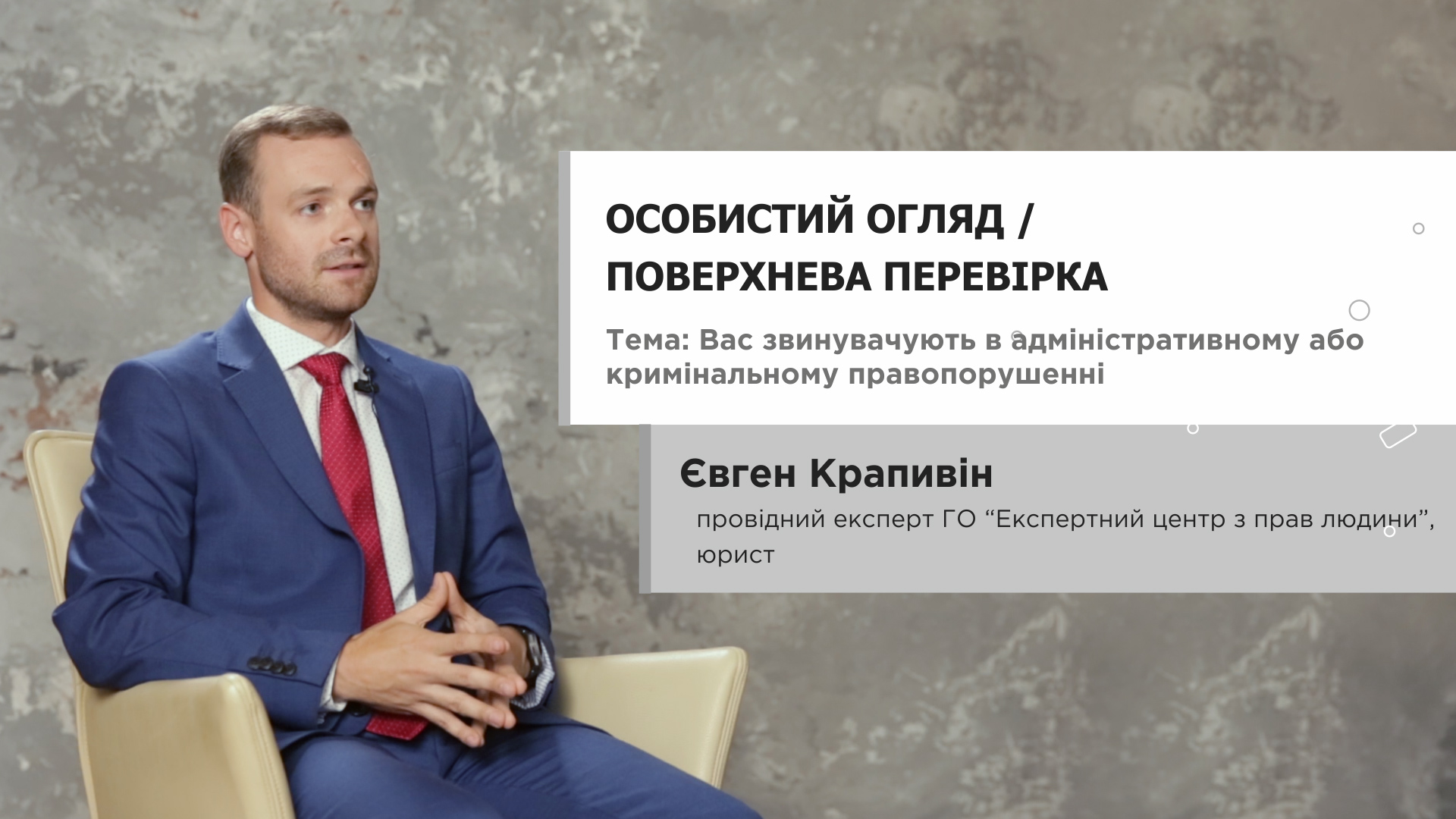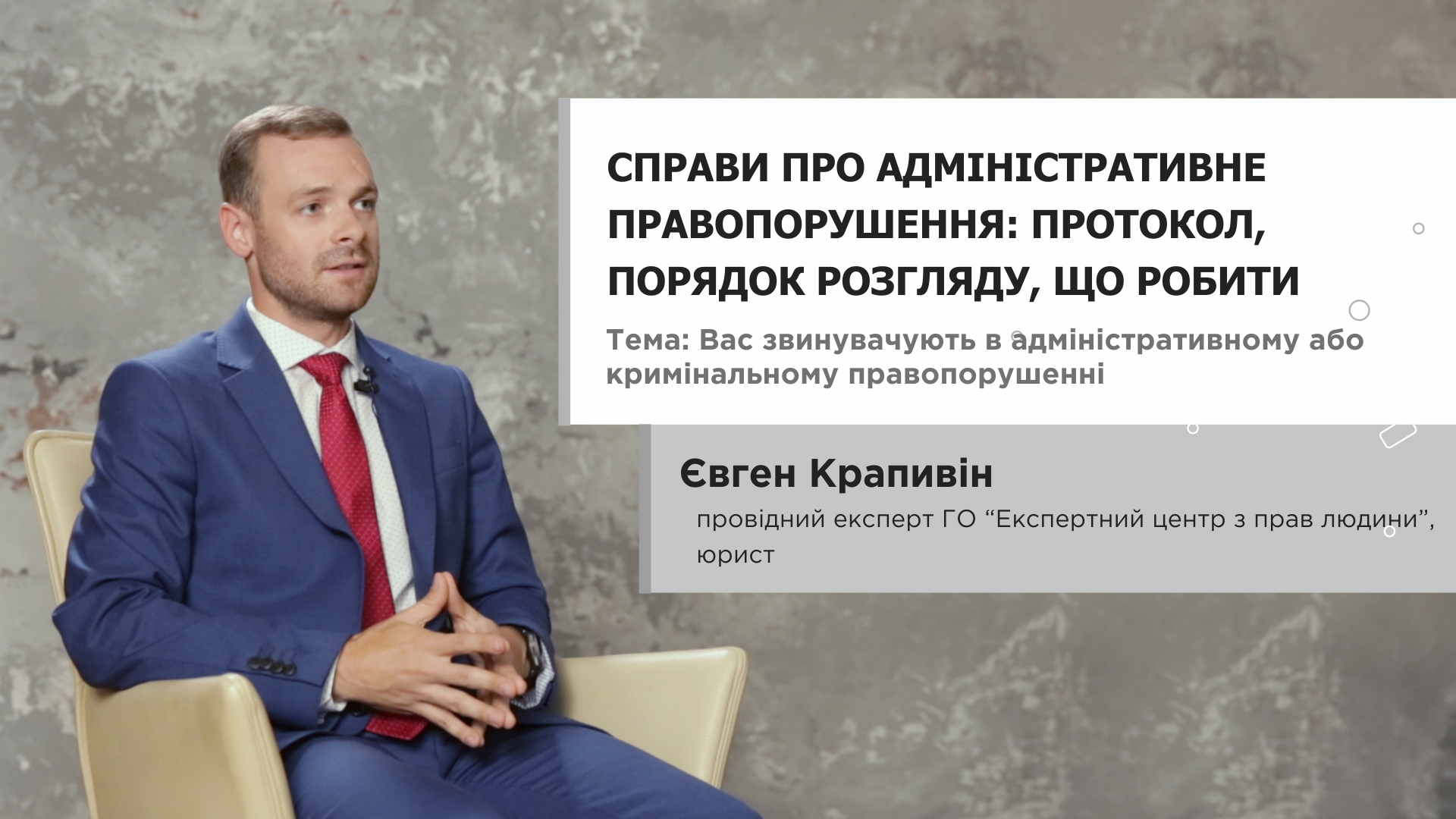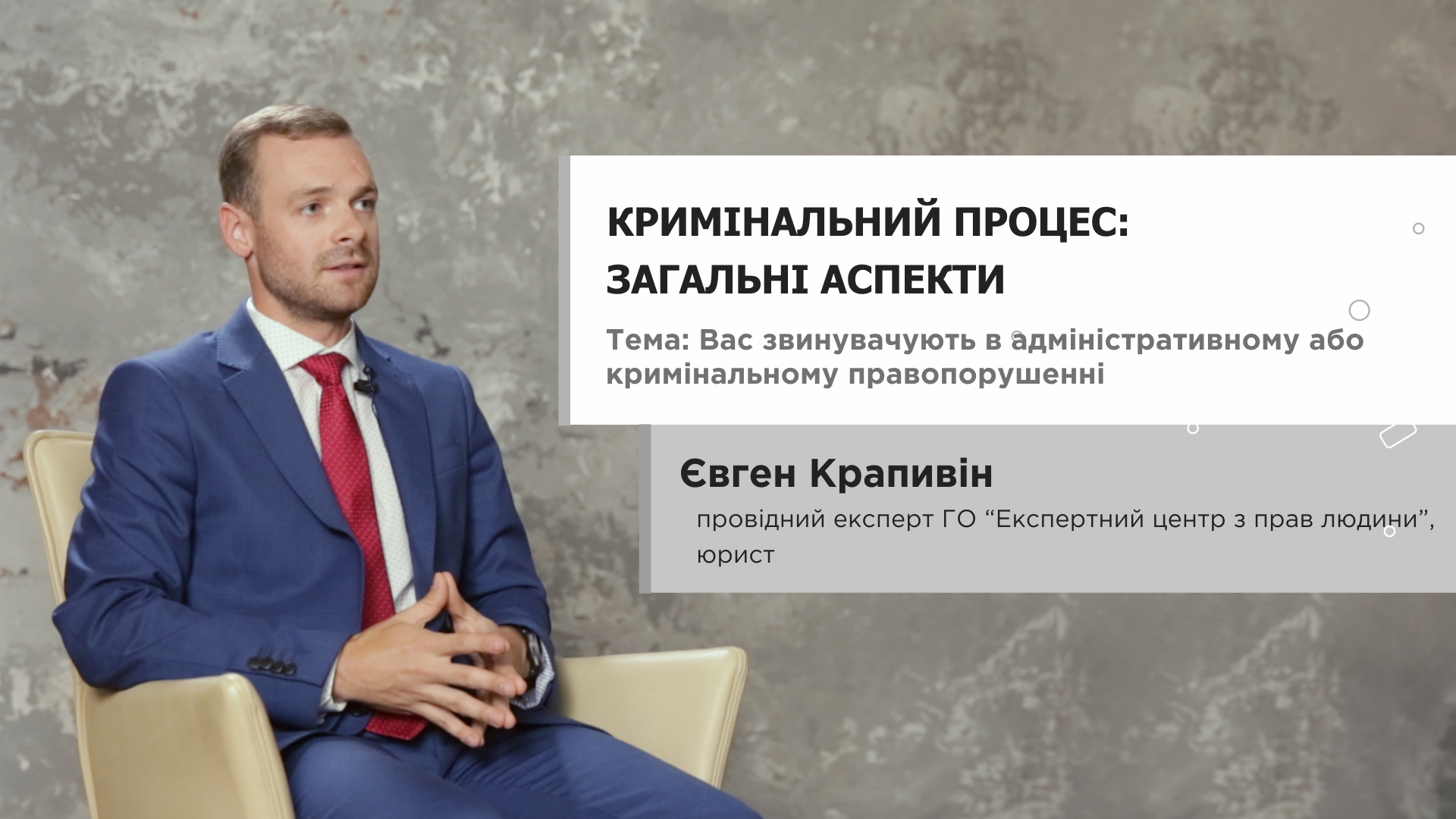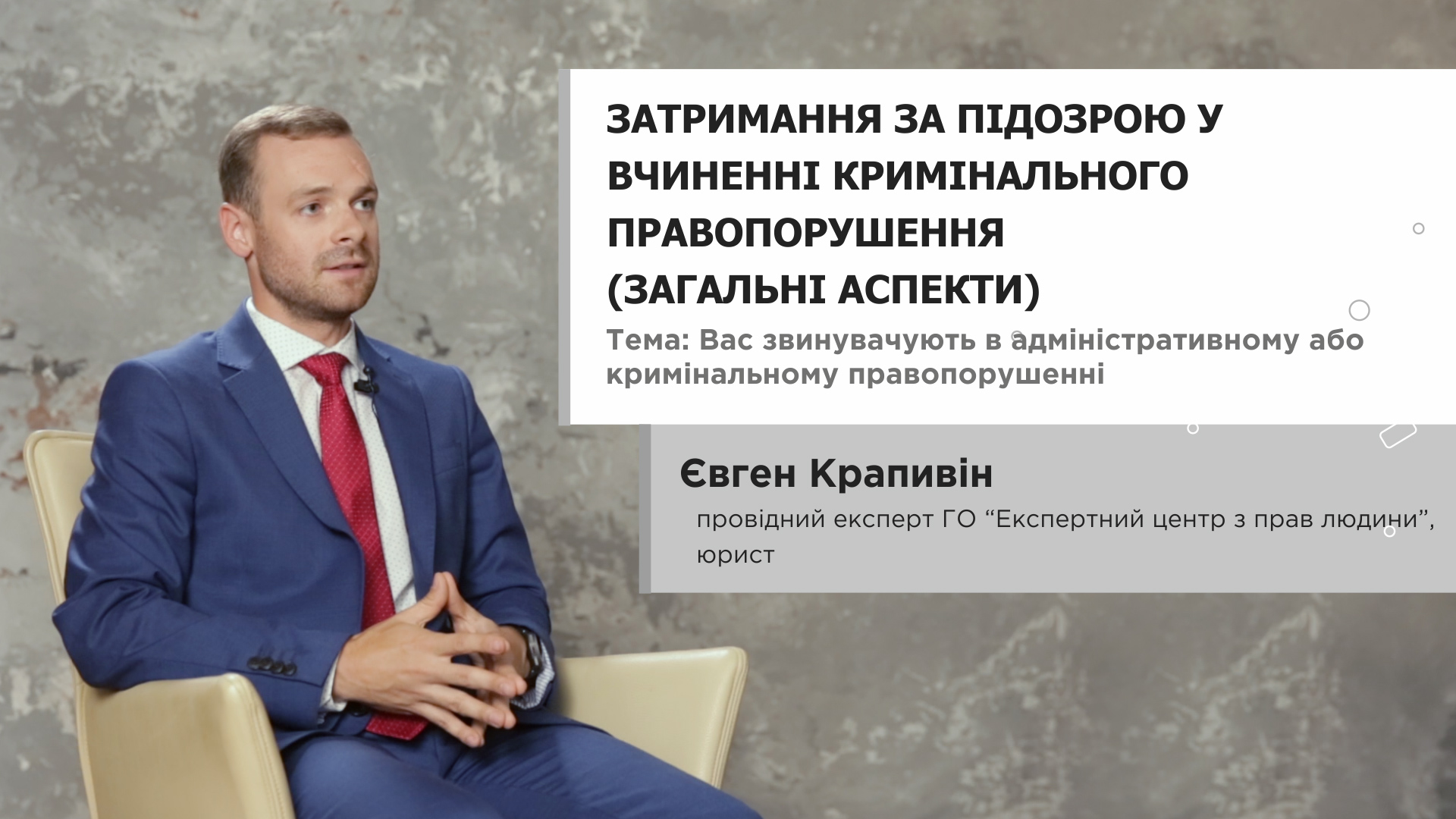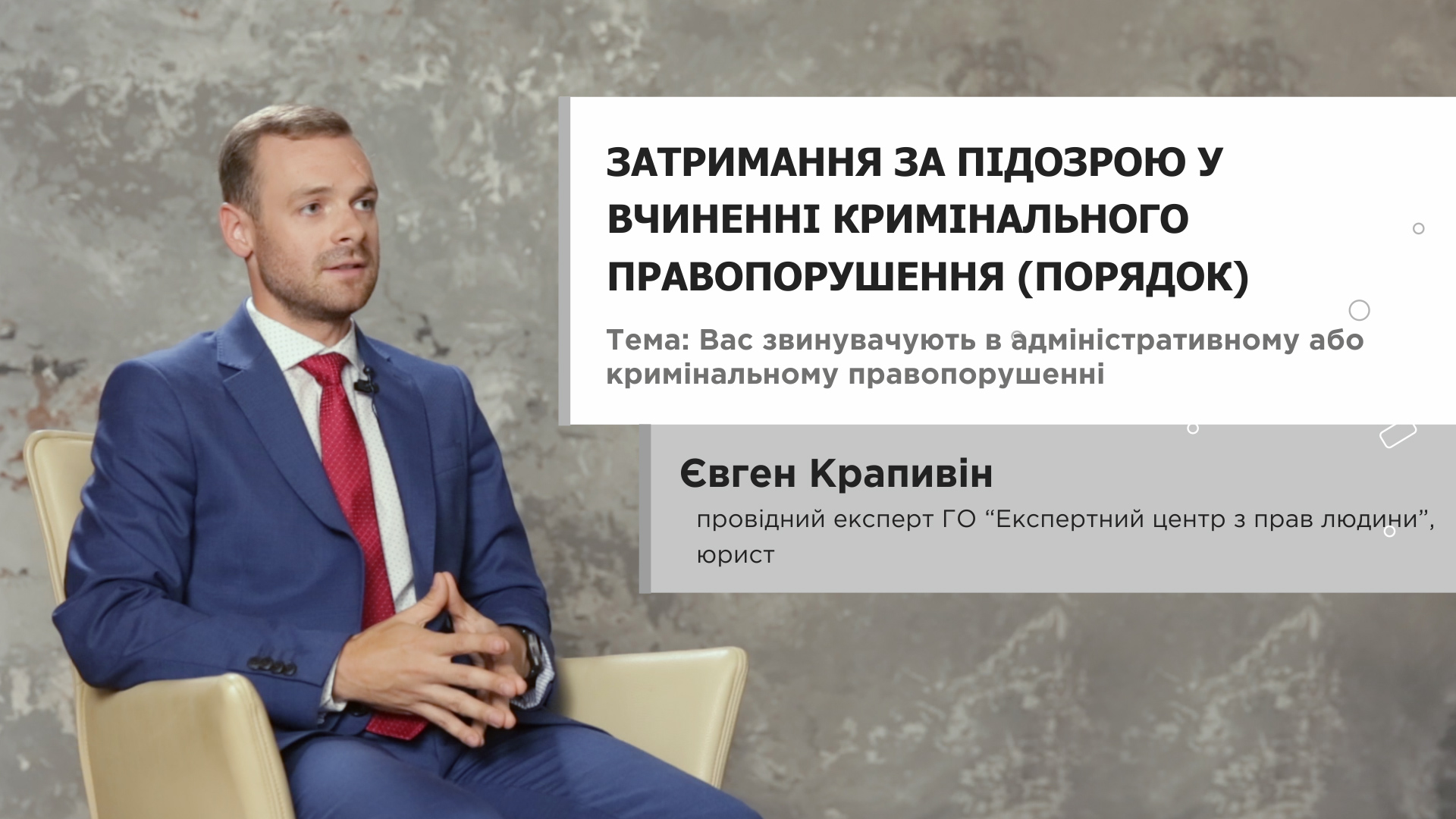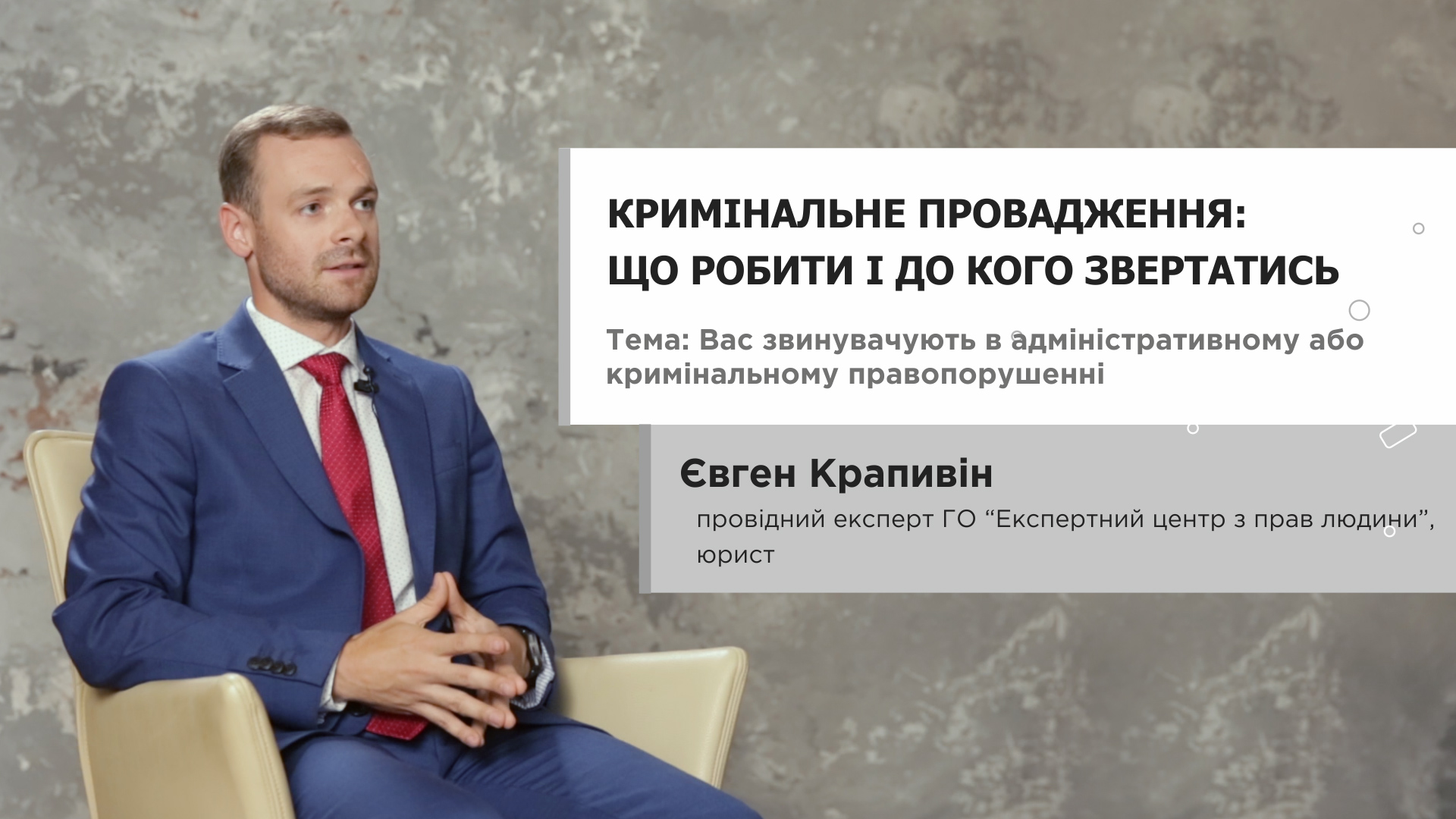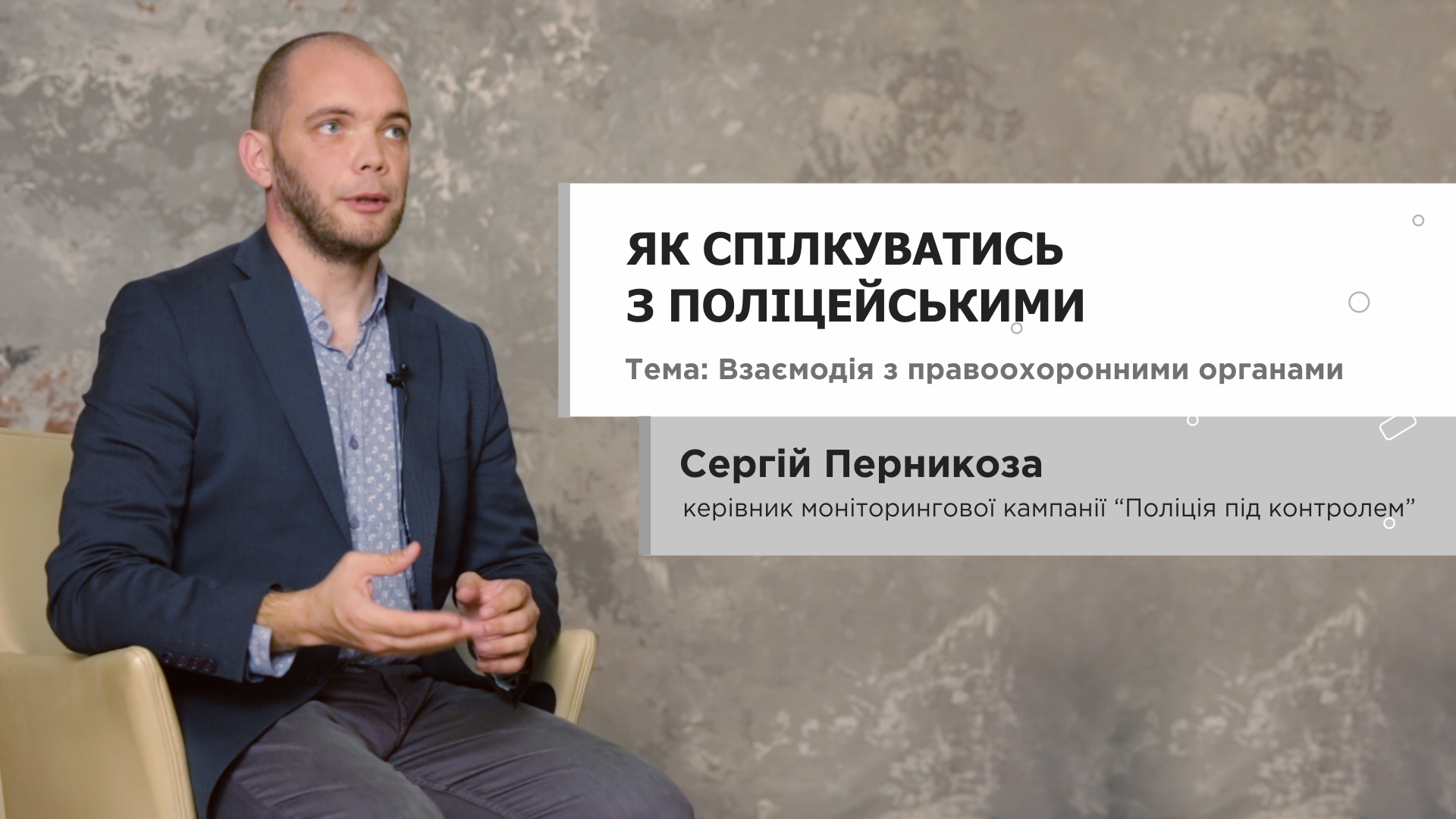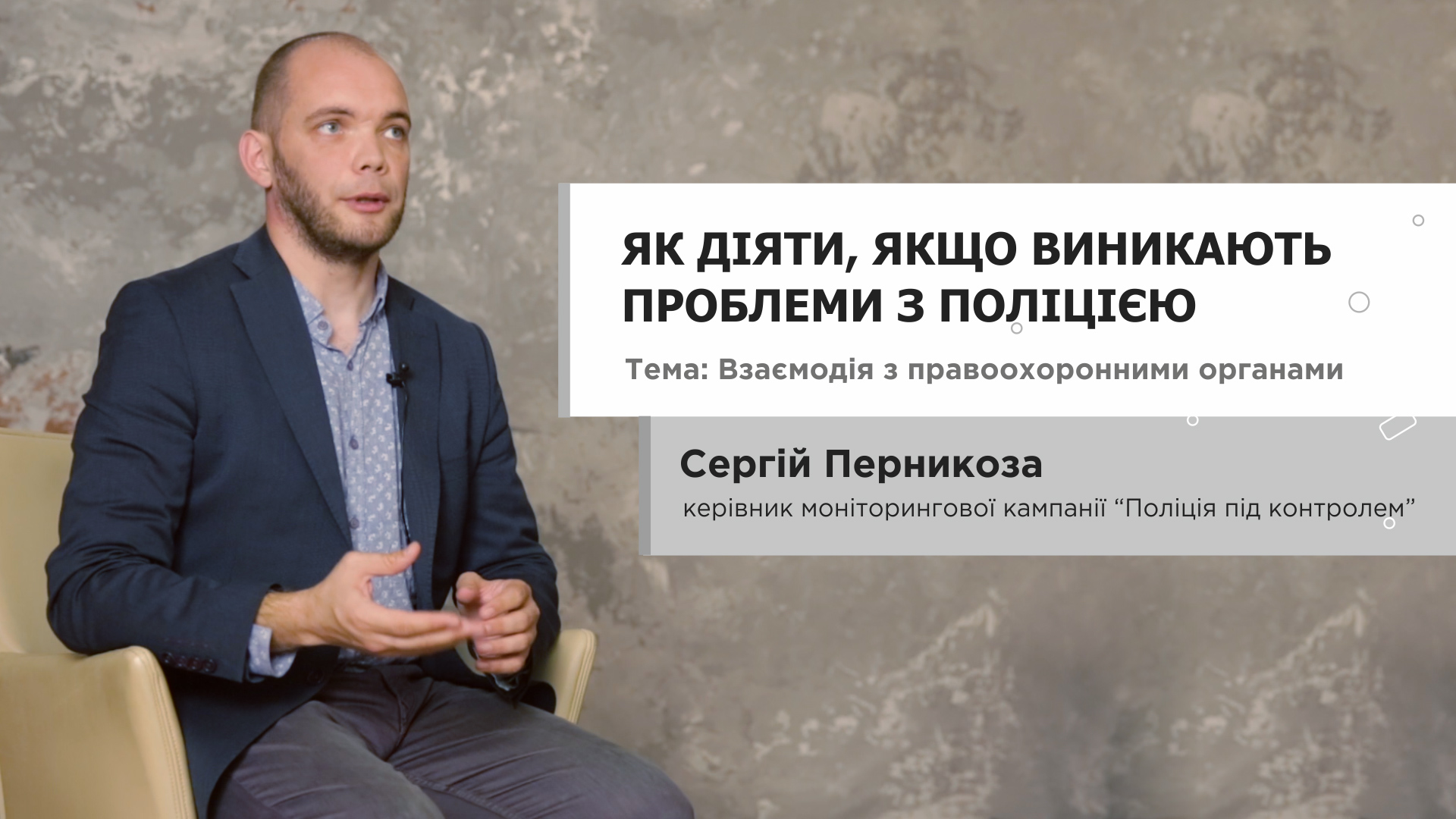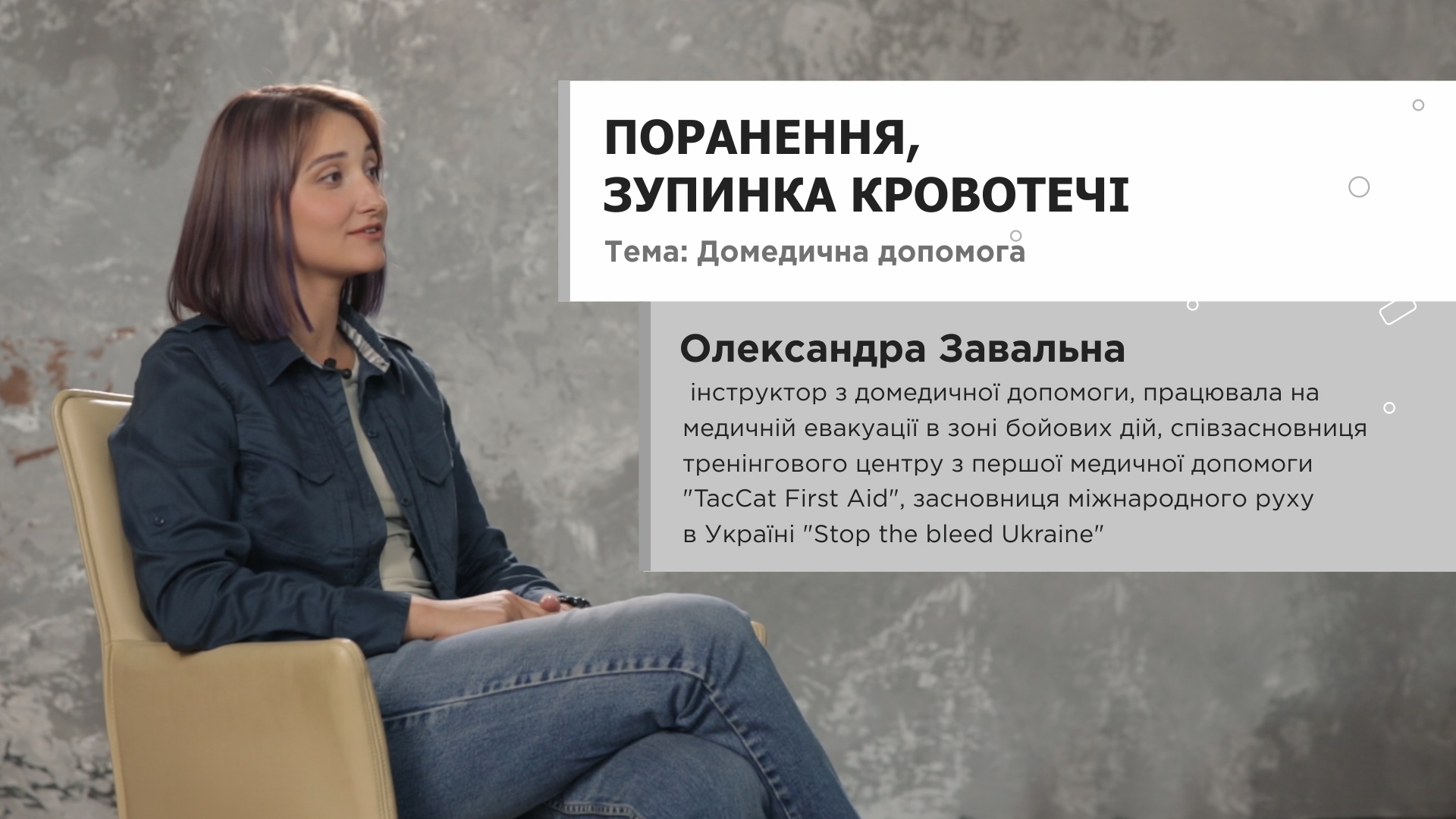- Welcome. My name is Eva SCHMIDT.
- I am a Head of Justice, Freedoms and Civic Space Unit of the United Nations Human Rights Monitoring Mission in Ukraine.
- On behalf of the Mission, I appreciate your interest in human rights and in protection of people who are at the forefront of promoting human rights values – civil society activists and human rights defenders. We believe that raising awareness about human rights and the challenges that activists face in Ukraine, will empower and strengthen civil society.
- Civil society is a powerful ally – of the states and of the United Nations – in achieving Sustainable Development Goals – SDGs –the global 2030 agenda that covers 17 Goals
Here are all the goals with their icons, for example.
- The SDGs are the result of the most inclusive consultations in the history of the United Nations. Grounded in international human rights law, SDGs offer unique opportunities to advance human rights for all, everywhere, without discrimination.
- Within the SDG agenda, civil society can come up with a set of indicators to help identify the most pressing issues in the national context and bring attention to them. This means that civil society can perform a watchdog function, to ensure that governments are delivering on their commitments.
- This shows us how a strong, independent and professional civil society has a key role, both in the national and global context.
After this presentation, you will know: : (a) How the UN perceives civil society, (b) What the United Nations Human Rights Monitoring Mission in Ukraine does, (c) Who are Human Rights Defenders and how international law protects them; (d) What is the UN role in protecting and empowering civil society; (e) What the key challenges are to civic space in Ukraine (f) and finally, what international mechanisms are available for the protection of human rights defenders .
- Let me now briefly talk about the United Nations Human Rights Monitoring Mission in Ukraine. First of all, we implement the mandate of the UN High Commissioner for Human Rights, headquartered in Geneva. Michele Bachelet is the current UN Human Rights Chief.
- The UN Human Rights Monitoring Mission was deployed to Ukraine in March 2014, following an invitation of the Government and in response to developments in the country at that time. We monitor report and advocate on the human rights situation in the entire country, with a particular focus on the armed conflict in the east and the Autonomous Republic of Crimea and the city of Sevastopol, Ukraine, temporarily occupied by the Russian Federation.
- We have seven offices which you can see on the map: Kyiv, Kharkiv, Donetsk and Luhansk, Kramatorsk, Mariupol, and Odesa. We also conduct remote human rights monitoring in Crimea.
- How we collect information? First, we speak to victims and witnesses of human rights violations. Second, we do site visits and verify the information with our eyes and ears. Third, we do trial monitoring and visit places of deprivation of liberty. We analyze official documents and we speak to partners – state officials, international community, and civil society.
- Therefore, the core of our methodology is documenting human rights violations, analyzing trends and patterns and advocating for measures to stop violations and improve the situation.
- Every three months, the Mission publishes a report on the human rights situation in Ukraine. We also produce public thematic reports. To name some of them – a report on accountability for killings; on conflict-related sexual violence; briefing notes on the Accountability for killings and violent deaths at Maidan and in Odesa in 2014.
- Here you see the usual cycle of our work – monitoring, documenting, advocacy, early warning, technical advice, awareness raising.
- All our reports are available online in three languages – you can google UN Ukraine Human Rights Reports or follow the link on the screen.
Part 2
- Governments are the main duty-bearers when it comes to human rights guarantees. But it’s also the role of each and every one of us to stand up for human rights, to stop and prevent discrimination, inequality, harassment. Everyone who stands up for human rights is a human rights defender. This link leads you to a resource for inspiration.
- You may be surprised, but this is exactly how the UN Declaration on human rights defenders puts it. It says that human rights defenders are “individuals, groups and associations … contributing to … the effective elimination of all violations of human rights and fundamental freedoms of peoples and individuals”. It is worth mentioning that human rights are not divisible. This means that if anyone promotes just some rights for some people, and is not clearly in favour of the full set of rights for other people, this person would not be considered a human rights defender. For example, if an activist demands a higher sentence for an individual on trial in order to protect the victim’s interests and attempts to put pressure on the judges to influence their decision this may be considered as undermining the right to fair trial for the defendant, and jeopardize the independence of the judiciary.
- Human rights defenders can be anyone working to promote human rights, ranging from worldwide-operating intergovernmental organizations to individuals working within their local communities, at the grass-roots level.
- Human Rights Defenders can be of any gender, of varying ages, from any part of the world and from all sorts of professional or other backgrounds. It is important to note that we consider human rights defenders not only those working with NGOs and intergovernmental organizations such as the UN but also, in some instances, government officials, civil servants or businessmen and women. What is most important in characterizing a person as a human rights defender is the human rights character of the work they are doing and that they support all human rights for all. It does not matter whether a person is known as a “human rights activist” or whether he or she works for an organization that includes “human rights” in its name in order to be a human rights defender.
Now that we know how the UN Declaration on human rights defender defines human rights defender, let’s speak of what protection this key document foresees for them.
- The Declaration provides for the support and protection of human rights defenders in the context of their work. It articulates already existing rights in a way that makes it easier to support and protect human rights defenders in their practical role and situation.
- The Declaration outlines some specific duties of States.
- Particular rights mentioned in the Declaration include:
- to conduct human rights work individually and in association with others;
- to meet or assemble peacefully;
- to seek, and obtain information relevant for the human rights situation;
- to submit to governmental bodies and agencies and organizations concerned with public affairs criticism and proposals for improving their functioning and to draw attention to any aspect of their work that may impede the realization of human rights;
- to make complaints about official policies and acts relating to human rights and to have such complaints reviewed; to offer and provide professionally qualified legal assistance or other advice and assistance in defence of human rights;
- to attend public hearings, proceedings and trials in order to assess their compliance with national law and international human rights obligations;
- to solicit, receive and utilize resources for the purpose of protecting human rights (including the receipt of funds from abroad).
- We saw, since 2014, rapid development of the civic space in Ukraine. While the progress is impressive, certain challenges to civic space in Ukraine remain and need to be addressed.
- In this context, by “civic space” we mean the environment and legal framework in which civil society operates; the place that civil society actors occupy within society and the relationships among civil society actors, the State, and the general public. This concept includes freedoms of opinion and expression, association, peaceful assembly, and political rights.
- Key challenges that we found through our monitoring are
- (a) ensuring security for peaceful assemblies and protecting groups at risk, without discrimination, everywhere in Ukraine;
- (b) effectively investigating and holding accountable any perpetrators of violent attacks against individuals and groups constituting civil society, and
- (c) countering any attempts to limit civic space by means of shaping the regulatory framework (e.g. the e-declarations requirement for anti-corruption activists).
- Any democratic government must address such challenges in order to avoid that human rights defenders or anyone who wants to stand up for their rights or the rights of others, anyone who lives their culture or celebrates their identity, feel intimidated or excluded.
- In line with our methodology, UN human rights officers document violations that have occurred within the civic space. For instance, we speak to people who suffered physical attacks, based on their activity as civil, political or environmental activists, journalists, or anti-corruption champions.
- In 2018, we documented 164 cases of such violations.
- The most worrying problem faced by civil society in Ukraine is the physical safety of activists, as well as journalists.
- We outlined emblematic cases, legal concerns and specific recommendations on ensuring accountability in our thematic report Civic space and fundamental freedoms ahead of the presidential, parliamentary and local elections in Ukraine in 2019-2020. You will find this report at the link. Attacks ranged from spraying acid on a woman, known as an anti-corruption activist, to gun injuries. At least two activists died, reportedly, as a result of such attacks.
- This trend of brutal violent attacks against civil society activists observed in 2018 ebbed in 2019. This could be linked with increased public attention to the issue, bringing us to the point we made in the very beginning – that awareness helps for protection and strengthen civic space.
- Meanwhile, journalists and media professionals who by nature of their activities can be also human rights defenders, are often targeted, and this pattern continued into 2019.
- Our concern is that investigations in such cases are often slow and trials protracted. We observed cases where investigations stopped or trials were re-launched.
- The Mission advocates for accountability for perpetrators of attacks against civil society activists. Impunity for such attacks risks fuelling more attacks and sends a message to other human rights defenders that they may not be protected by the State. In some societies, this is used to intimidate human rights defenders and discourage human rights work, silence criticism and suppress freedom of expression in general.
Part 3
- As one component of civic space the Mission covers freedom of expression in general and with a particular focus on a safe environment for civil society and human rights defenders who exercise this freedom. Such safety requires adequate responses to attacks against activists and a suitable legislative framework for functioning of civil society institutions.
- As mentioned in the previous lecture in order to gather first-hand information we conduct confidential interviews with victims and witnesses of human right violations, we monitor trials, and conduct meetings, for instance with law enforcement. We also maintain contacts with relevant human rights defenders and partners as additional sources of information.
- One of our most effective tools is the release of public statements and reports. The situation of civil society and human rights defenders is reflected in every quarterly report. Furthermore, the Mission also releases thematic reports. One of these was released in March 2019 – this report which I mentioned earlierwas particularly focused on the condition of civic space ahead of elections this year.
- As an example of successful advocacy we can use a very recent development. The Mission, as many others, advocated against excessive financial reporting requirements for certain categories of civil society activists, also known as “e-declarations”. Recently the Constitutional Court of Ukraine recognized such requirements as unconstitutional. We believe that this type of joining efforts with civil society and human rights defenders themselves, as well as other actors such as the Council of Europe and the EU, can bring good results.
- Any physical attack is the worst thing that can happen to a civil society activist or human rights defender. As part of our work we record each verified case that could be checked at least through three independent sources.
- Then, with the victim’s consent we deliver the story to the international community. Bringing every such case to the attention of the public decreases the chances of similar attacks, because potential perpetrators have to fear prosecution.
- In cases where the Mission sees possibility of advocacy intervention – we also can directly communicate with law enforcement to focus or increase efficiency of their efforts .
- In some cases the Mission also considers trial monitoring as tool in protection. Sometimes our presence during hearings was considered as additional protection for victims, their lawyers and even sometimes the judges, for example where supporters of the attacker attend the hearing and intimidate trial participants.
- In addition to direct activities of the Mission that I mentioned earlier (just to remind – public reporting, protection by presence, advocacy interventions) we can also assist in providing information and submitting complaints to the UN special procedures, with your consent.
- If we have consent of victim we can also share the story to request assistance from other actors – such as international organizations or NGOs. Sometimes, such referrals provide essential support to victims.
- The Human Rights Council is an inter-governmental body within the United Nations system responsible for strengthening the promotion and protection of human rights around the globe, and for addressing situations of human rights violations and making recommendations on them. The Council is made up of 47 United Nations Member States which are elected by the UN General Assembly for three years.
- In order to promote and monitor human rights worldwide the United Nations Human Rights Council establishes special procedures. Special procedures are individual independent human rights experts, or groups of such experts, who report and advise on human rights issues. They can be called Special Rapporteurs, Special Representatives, Working Groups, and Independent Experts. Special procedures have either thematic or country-specific mandates. A link to SPs is also available on the screen.
- Recently, the Mission assisted the UN Independent Expert on protection against violence and discrimination based on sexual orientation and gender identity, is his 10-day visit to Ukraine. Before this, in 2018 we also contributed to organizing the visit of the UN Independent Expert on foreign debt, other financial obligations and human rights. In June 2018, three special procedures (on national minorities, racial discrimination and housing) issued a strong statement regarding attacks on Roma settlements, after which the Minister of Interior publicly called to improve efficiency of investigations, and the series of attacks eventually ceased.
- In case of an individual human rights violation or if there is a pattern of concern, victims or their representatives can submit individual cases to special procedures mandate-holders. Special Procedures mandate holders can turn to the Government to ask for explanations, in follow-up to complaints, and to protect individuals.
- It is worth mentioning that a special mandate also exists for human rights defenders. The mandate was established in 2000 by the Commission on Human Rights to support implementation of the 1998 Declaration on human rights defenders.
- Civil society actors can support individuals seeking protection from human rights abuses through Special Procedures. As I mentioned earlier, the Mission can assist in submitting case to them, and does so regularly.
- Besides, we also cooperate with and provide expertise to human rights treaty bodies. You can see a link to them on the screen. These treaty bodies are committees of independent experts, and they monitor implementation of core international human rights treaties and issue recommendations to governments on implementation of treaties such as the International Covenant on Civil and Political Rights. By the way, activist and human rights defenders can also support these bodies with information and through them make their own calls to the Government on specific human rights concerns stronger.
- The United Nations Human Rights Monitoring Mission in Ukraine supports civil society. We believe that educating activists to improve their protection is essential for building a powerful and effective civil society and human rights defenders in Ukraine.
- While contributing to protection of individual civil society activists and human rights defenders – we believe that we are contributing to the protection of all. We know that everywhere and especially here in Ukraine civil society is key to protect human rights for everyone.
- Now you know (a) How the UN perceives civil society, (b) What is the United Nations Human Rights Monitoring Mission in Ukraine, (c) What are Human Rights Defenders and how international law protects them; (d) the Role of HRMMU in protecting activists; (e) What are the main challenges to civic space in Ukraine; (f) What is HRMMU’s role in protecting activists; (g) What is UN Special Procedures.
- If you wish to follow us
- Thank you for your interest!


